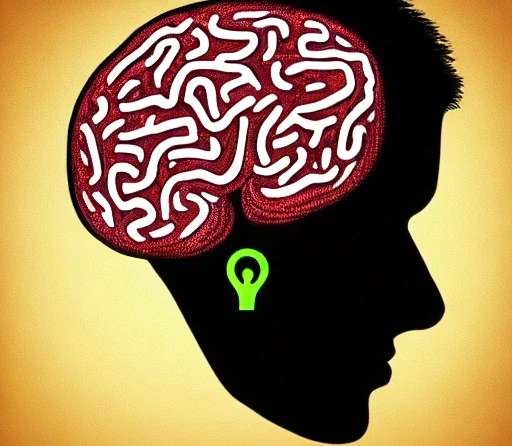A few words about epilepsy
July 7th 2023

Epilepsy is a neurological disease affecting millions of people around the world, and its prevalence in Chile is similar (1% of the population). It's a condition characterized by the occurrence of recurrent seizures, which are episodes of abnormal electrical activity in the brain. It can start at any age, being especially more common in children and older adults.
In my opinion, a good approach to understanding this complex condition is the so-called network paradigm, which considers epilepsy as a brain network disease. There are other examples of this broad disease concept which are not cases of epilepsy, such as Autism Spectrum Disorder, Alzheimer's Disease, and Schizophrenia.
Throughout history, epilepsy has been the subject of many mysteries and misunderstandings. In ancient times, it was believed that seizures were caused by demonic possessions or divine punishments. Fortunately, today, we understand this disease better and can offer appropriate treatments.
The exact cause of epilepsy is still not fully understood, but it's believed to be the result of various factors, such as genetic predisposition, brain injuries, infections, or trauma. It's important to emphasize that epilepsy is not contagious and it's not a psychiatric disease.
Seizures are the most notable symptom of epilepsy, but there are different types of seizures. Some people experience generalized seizures, which affect the entire brain and can cause loss of consciousness and involuntary movements throughout the body. Others may have focal seizures, which affect a part of the brain and can manifest as uncontrollable movements or changes in consciousness.
Diagnosing epilepsy involves a very detailed clinical evaluation of the patient's symptoms and medical history, as well as complementary tests such as the electroencephalogram (EEG) to detect abnormal brain electrical activity. Once epilepsy is diagnosed, there are different treatment options that may include a wide variety of antiepileptic drug options, even surgery or implantable devices.
It's essential that people with epilepsy receive appropriate treatment and have the necessary support to manage their condition. Although epilepsy can have a significant impact on the quality of life, many people with this disease can lead a normal life and control their seizures with proper treatment.
It's important to note that many people don't know what to do if they witness a seizure. The most important thing is to stay calm and provide a safe environment around the affected person. You should not try to stop the seizure or put objects in the person's mouth. It's recommended to gently turn them onto their side to prevent choking on saliva.
Although there is still much to understand, there is growing knowledge about this condition and how to treat it. It's important to raise awareness and inform society about epilepsy to ensure that those who suffer from it receive a proper diagnosis and treatment.
In my opinion, a good approach to understanding this complex condition is the so-called network paradigm, which considers epilepsy as a brain network disease. There are other examples of this broad disease concept which are not cases of epilepsy, such as Autism Spectrum Disorder, Alzheimer's Disease, and Schizophrenia.
Throughout history, epilepsy has been the subject of many mysteries and misunderstandings. In ancient times, it was believed that seizures were caused by demonic possessions or divine punishments. Fortunately, today, we understand this disease better and can offer appropriate treatments.
The exact cause of epilepsy is still not fully understood, but it's believed to be the result of various factors, such as genetic predisposition, brain injuries, infections, or trauma. It's important to emphasize that epilepsy is not contagious and it's not a psychiatric disease.
Seizures are the most notable symptom of epilepsy, but there are different types of seizures. Some people experience generalized seizures, which affect the entire brain and can cause loss of consciousness and involuntary movements throughout the body. Others may have focal seizures, which affect a part of the brain and can manifest as uncontrollable movements or changes in consciousness.
Diagnosing epilepsy involves a very detailed clinical evaluation of the patient's symptoms and medical history, as well as complementary tests such as the electroencephalogram (EEG) to detect abnormal brain electrical activity. Once epilepsy is diagnosed, there are different treatment options that may include a wide variety of antiepileptic drug options, even surgery or implantable devices.
It's essential that people with epilepsy receive appropriate treatment and have the necessary support to manage their condition. Although epilepsy can have a significant impact on the quality of life, many people with this disease can lead a normal life and control their seizures with proper treatment.
It's important to note that many people don't know what to do if they witness a seizure. The most important thing is to stay calm and provide a safe environment around the affected person. You should not try to stop the seizure or put objects in the person's mouth. It's recommended to gently turn them onto their side to prevent choking on saliva.
Although there is still much to understand, there is growing knowledge about this condition and how to treat it. It's important to raise awareness and inform society about epilepsy to ensure that those who suffer from it receive a proper diagnosis and treatment.
PMS/pms.